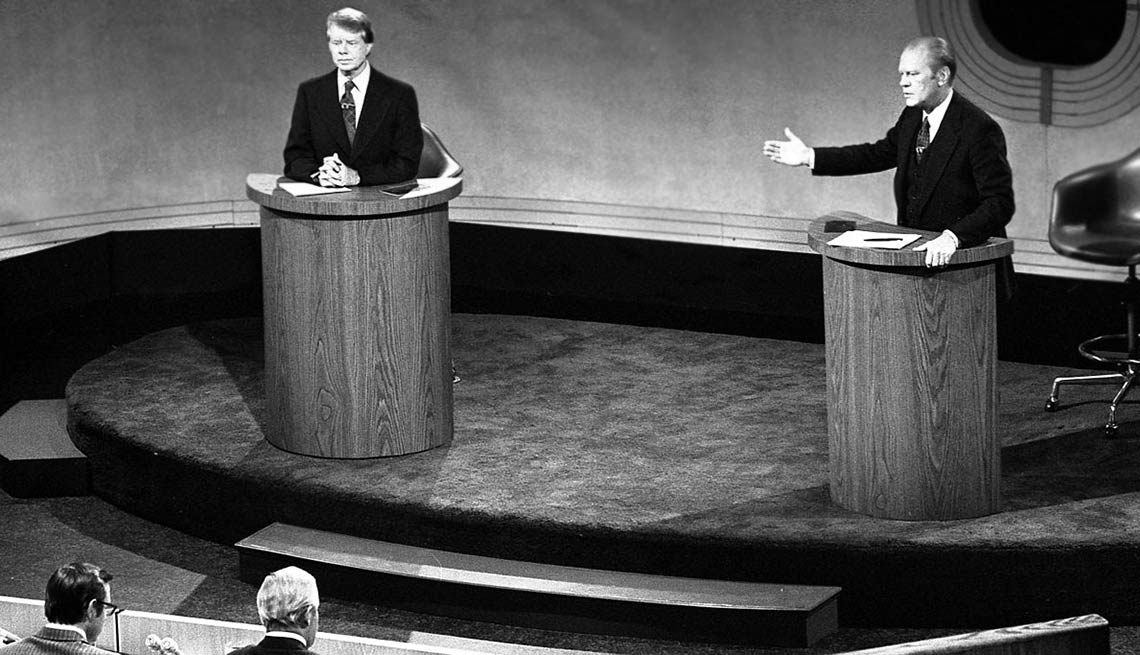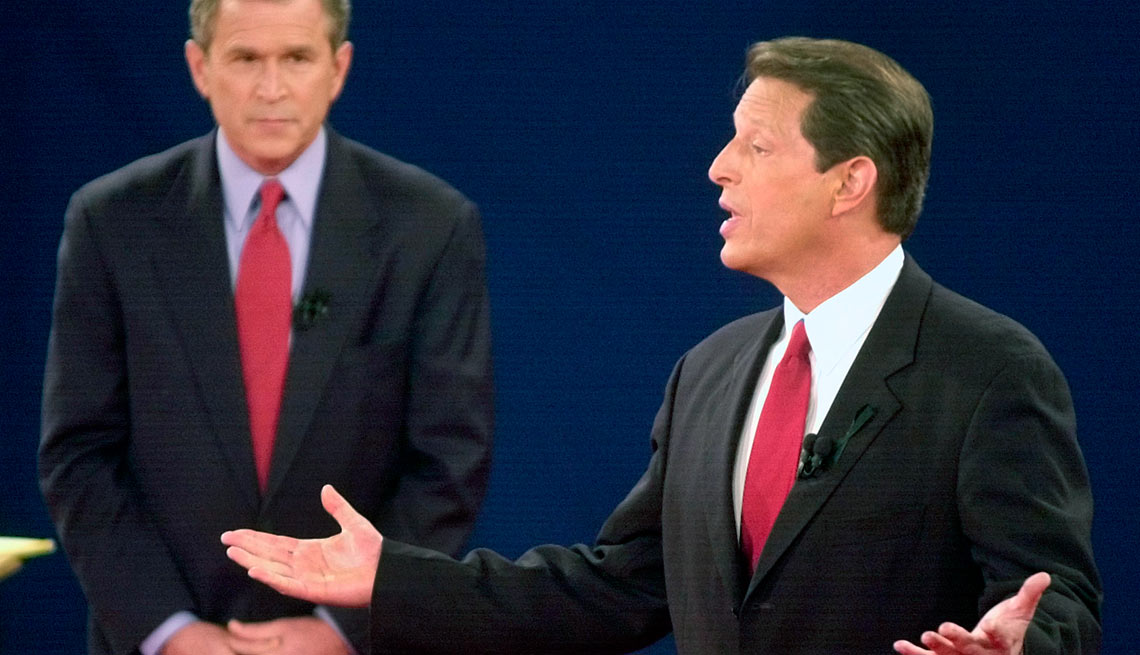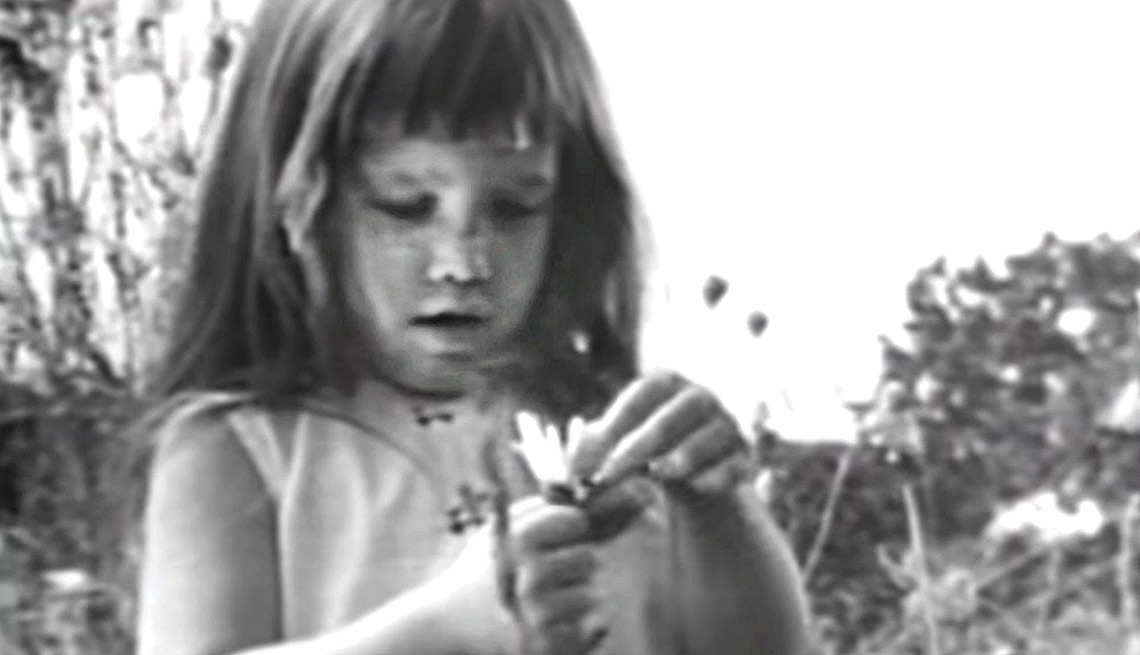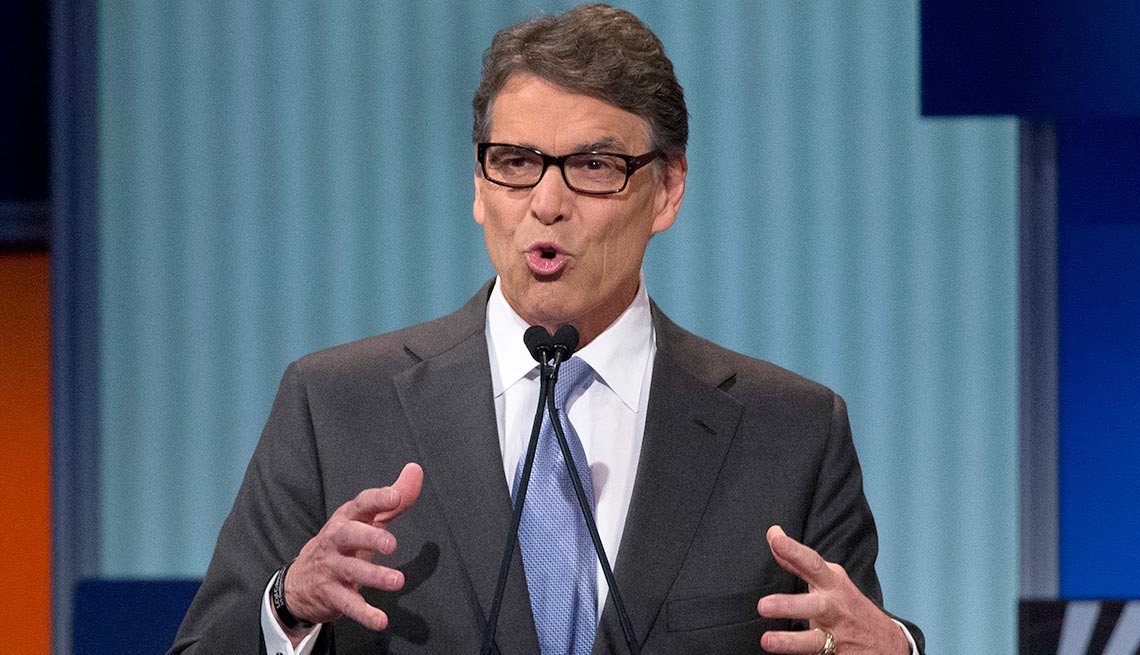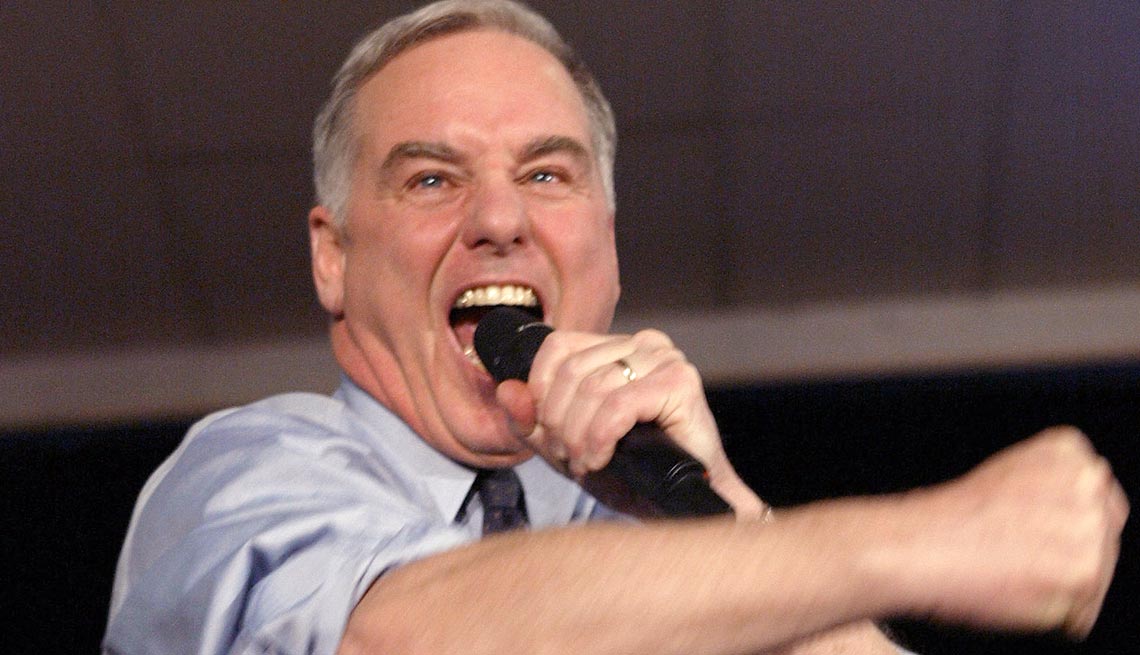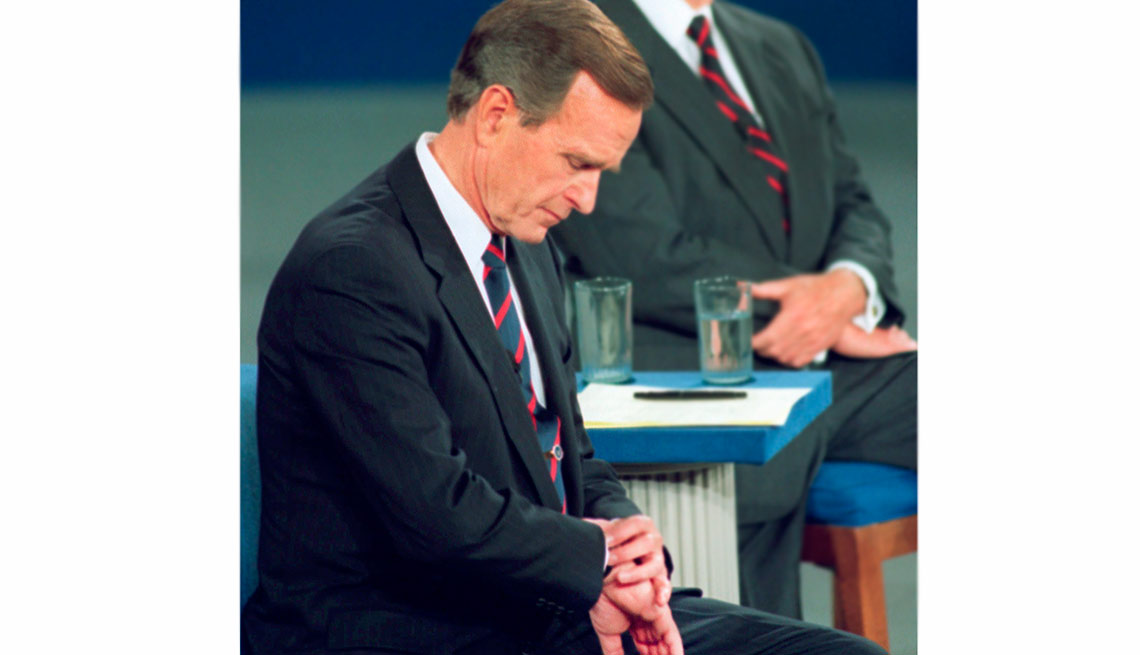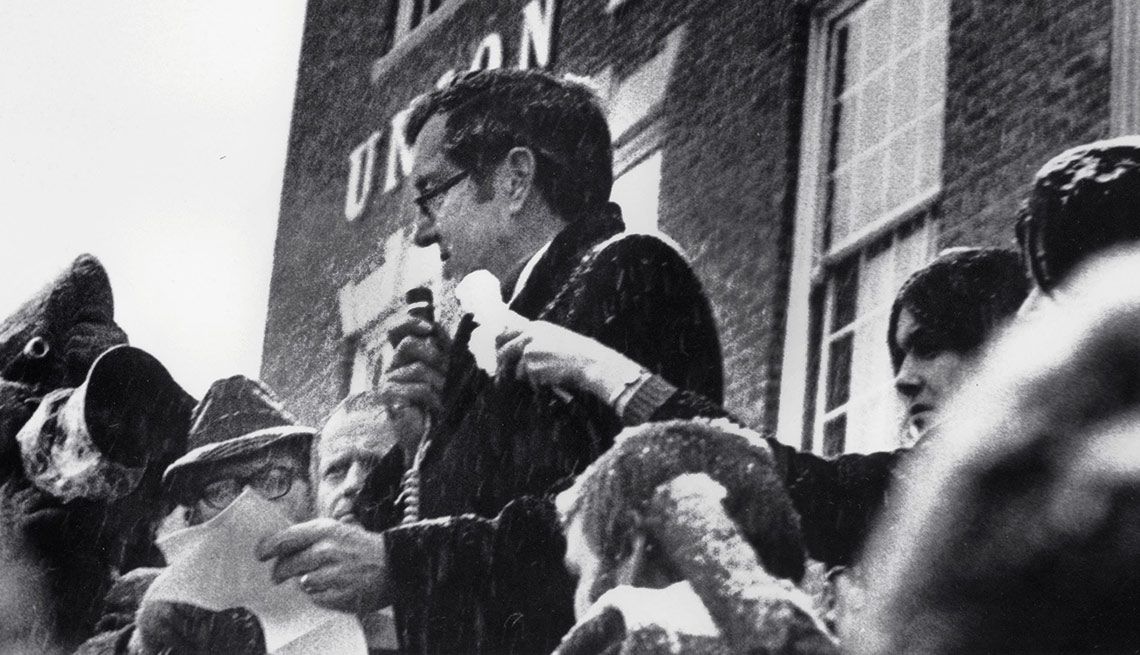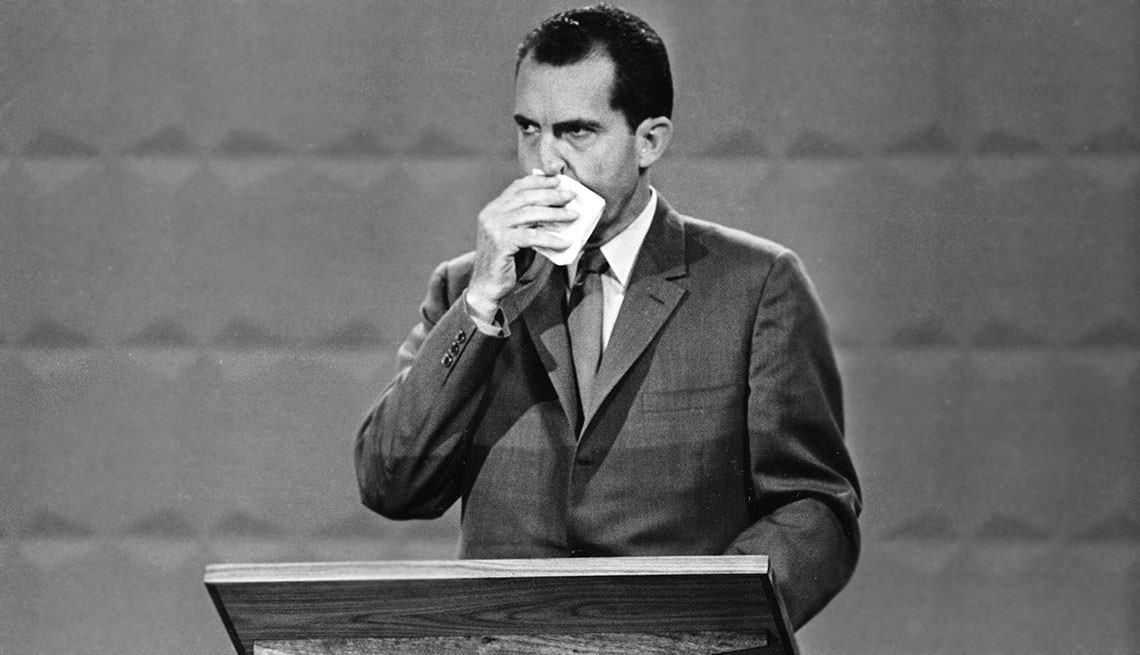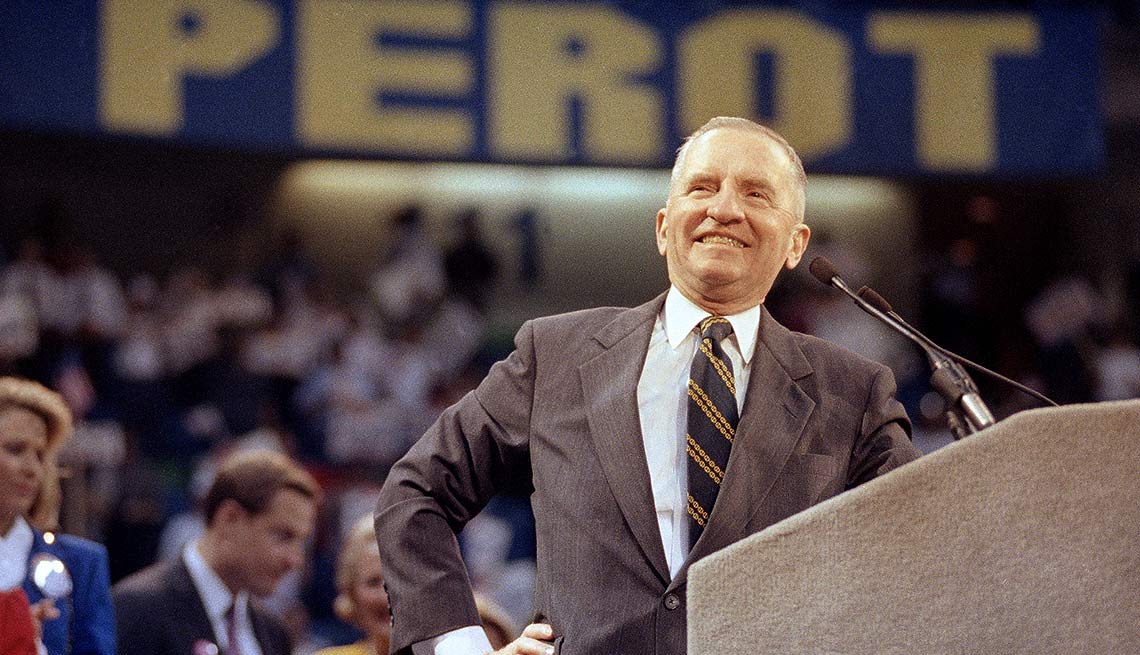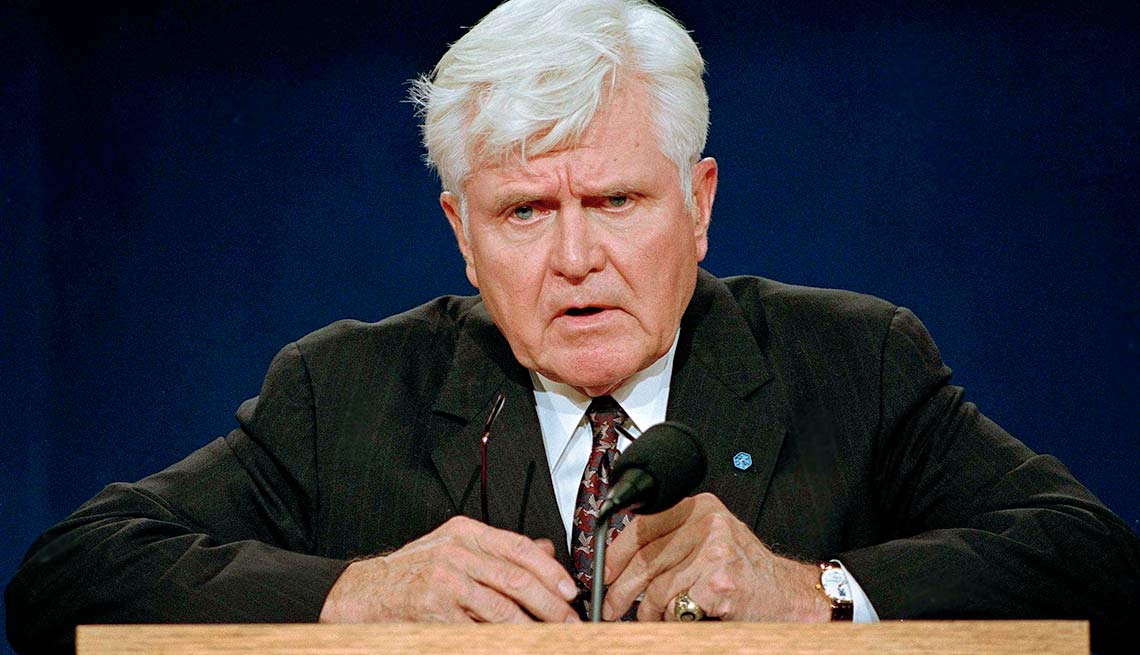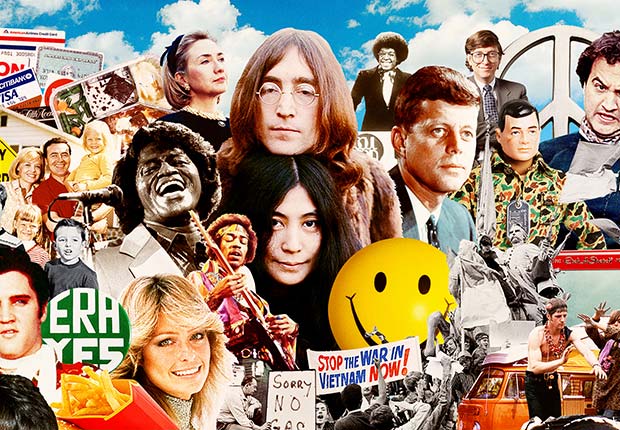10 Weird Things That Happened During Presidential Campaigns
Candidates have made plenty of blunders, quirky comments and plain old bad choices through the years
by Frieda Wiley, AARP, September 2016
-
Public Domain
‘I’m Sorry, What?’
En español | Running for a second term in 1976, President Gerald Fold declared during a debate, “There is no Soviet domination of Eastern Europe, and there never will be under a Ford administration.” Since the Soviets did, in fact, occupy much of the region, moderator Max Frankel gave Ford a chance to recant, but Ford held firm.
1 of 12 -
Ron Edmonds/AP
Huffing and Puffing
Vice President Al Gore let out long, heavy sighs before responding to questions throughout his first presidential debate against George W. Bush in 2000 — a sign of frustration that many found condescending and some critics count among the factors that led to his defeat.
2 of 12 -
DNC
The Ad That Bombed
In 1964, President Lyndon Johnson's campaign aired a chilling ad that opened with an image of a young girl picking the petals off of a daisy while counting aloud and ended with a nuclear bomb going off. It was tremendously controversial — criticized as scaremongering — and aired only once.
3 of 12 -
John Minchillo/AP
An Unforgettable Moment
In 2015, Republican hopeful Rick Perry began listing the three agencies he would eliminate if elected president. He recited the first two agencies — the departments of Commerce and Education — but blanked on the third one (Energy). He finally gave up, and said, “Oops.”
4 of 12 -
AP Photo/Paul Sancya
The Shriek Heard Around the World
During a speech in 2004, Democratic candidate Howard Dean began enthusiastically shouting the names of states where he was heading to campaign. Then he let out a sudden piercing shriek; the “Dean Scream” became forever associated with the doomed candidate.
5 of 12 -
Ron Edmonds/AP
Read My Body Language
George H.W. Bush was criticized for repeatedly looking at his watch during a presidential debate in 1992, as though he were trapped in a tiresome meeting. It only fed beliefs that he was disconnected from the country’s woes — in contrast to the Democratic contender Bill Clinton.
6 of 12 -
Robert Deutschman
AARP Offer: Remember the past, help shape the future
Share your stories and help advocate for political support to protect your future. Join AARP to support living with dignity and purpose.
7 of 12 -
AP
Bad Weather for Campaigning
Democratic presidential candidate Edmund Muskie was interviewed outdoors during a snowstorm in February 1972 and — maybe it was the melted snow — appeared to have tears streaming down his face. The apparent show of emotion hurt his image as a strong and even-tempered politician. He withdrew in April.
8 of 12 -
AP
Epic Fail
During the famous 1960 debate — one of the first to be televised — Sen. John F. Kennedy appeared vivacious and polished, while Vice President Richard Nixon, who reportedly had refused to have face powder applied, was gaunt and sweaty. The sharp contrast is often cited as a factor in Kennedy’s triumph.
9 of 12 -
Ron Heflin/AP
Giant Sucking Sound
Billionaire businessman Ross Perot, the quirky Texan who ran for president as an independent in 1992, dropped out of the race in July (before rejoining a few months later). He later explained why: He’d been told of a secret plot to sabotage his daughter’s wedding.
10 of 12 -
Greg Gibson/AP
Existential Crisis
Perot’s running mate, former Navy admiral James B. Stockdale, opened his speech during the 1992 vice presidential candidate debate with the now-infamous lines, “Who am I? Why am I here?” (He then told the audience, “I’m not a politician … so don’t expect me to use the language of the Washington insider.”)
11 of 12 -
12 of 12

